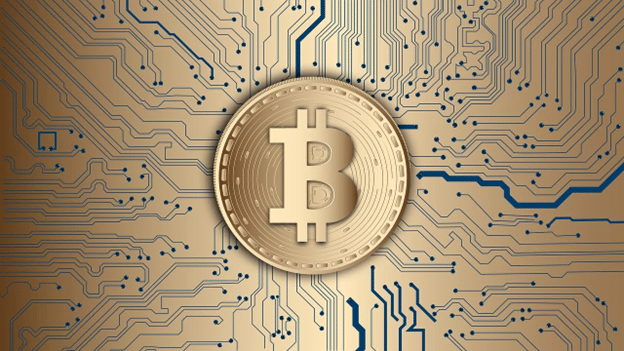In the dynamic and continually evolving intersection of technology and entertainment, two distinct domains that were once separate are now undergoing a captivating fusion – the realm of cryptocurrencies, led by Bitcoin, and the lively universe of gaming. This convergence is fundamentally altering our understanding of virtual economies and transactions within games, sparking dialogues about the consequences, possibilities, and forthcoming effects. Within this piece, we will extensively delve into the captivating space where digital currencies and gaming converge, delving into how this symbiotic relationship is revolutionizing the parameters of both sectors.

The Genesis of Virtual Economies
Virtual economies, once confined to the digital landscapes of multiplayer online games, are now taking center stage in the mainstream discourse. These economies have been steadily growing, thanks to the influx of blockchain technology and cryptocurrencies at this link which is an Online trading platform Bitcoin. In the past, players engaged in virtual economies primarily to enhance their in-game experience, but today, they also look at these transactions as potential sources of real-world income.
Bitcoin’s Role in Gaming
The advent of Bitcoin, a decentralized digital currency, has introduced a novel aspect to the realm of gaming. Renowned for its attributes of security, transparency, and global accessibility, Bitcoin has seamlessly integrated itself into gaming platforms and communities. This integration enables gamers to employ Bitcoin for tasks such as in-game transactions, the exchange of virtual assets, and engagement in blockchain-driven games that leverage smart contract technology.
Exploring the Nexus: Bitcoin and In-Game Transactions
The fusion of Bitcoin and gaming has resulted in a symbiotic relationship, with each domain influencing the other in unique ways. One significant development is the integration of Bitcoin into the payment systems of various games. This integration enhances the transaction process, allowing for faster, more secure payments and cross-border transactions.
The Rise of NFTs
One of the most remarkable outcomes of this convergence is the advent of Non-Fungible Tokens (NFTs) in the gaming world. NFTs, which are unique digital assets representing ownership of items or content, have revolutionized the concept of ownership within games. Players can now truly own and trade in-game assets as if they were physical possessions. This has opened up unprecedented avenues for creativity, investment, and entrepreneurship within virtual worlds.
Challenges and Considerations
While the integration of Bitcoin and gaming holds immense promise, it also presents its fair share of challenges. One significant concern is the potential for increased financial risks, especially for younger players who may not fully grasp the intricacies of cryptocurrency trading. Moreover, the volatile nature of Bitcoin’s value can lead to unpredictable fluctuations in the value of in-game assets and purchases.
Regulatory Landscape
Another complex facet is the regulatory environment surrounding Bitcoin and its use within gaming. As governments and regulatory bodies strive to understand and regulate cryptocurrencies, gamers and developers face uncertainty regarding the legality and taxation of their virtual transactions. Striking a balance between innovation and consumer protection remains a pivotal challenge.
The Path Forward: Opportunities and Beyond
The intersection of Bitcoin and the gaming industry, despite its inherent challenges, offers a wide array of promising opportunities for both sectors involved. Players within the gaming community stand to benefit from enriched experiences, heightened control over their virtual possessions, and novel avenues for generating revenue. Concurrently, game developers have the chance to delve into inventive gameplay mechanisms, incorporate the potential of blockchain technology, and access a rapidly growing market of tech-savvy gamers.
Education and Empowerment
Education will play a crucial role in realizing the full potential of this convergence. Empowering players with knowledge about Bitcoin, blockchain technology, and responsible financial decision-making can mitigate risks and enhance the overall gaming experience. Similarly, developers and platform providers should prioritize user-friendly interfaces and transparent systems to ensure accessibility for all.
Conclusion
The entanglement of Bitcoin and gaming marks an exciting chapter in the evolution of both industries. The once-separate worlds are now intricately linked, offering a glimpse into the future of virtual economies and in-game transactions. As the boundaries between digital and physical continue to blur, it is imperative that stakeholders collaborate to ensure a secure, innovative, and enriching experience for players worldwide. The convergence of Bitcoin and gaming is not just about transactions; it’s about unlocking new dimensions of play, ownership, and self-expression in the digital realm.

